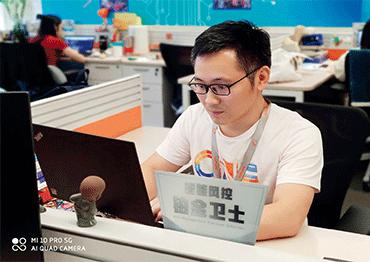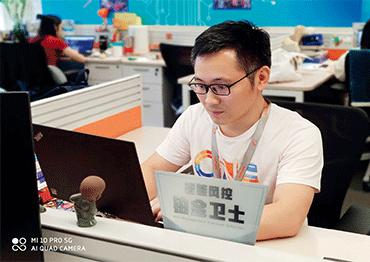In the US, to mark World Suicide Prevention Day on September 10, 2019, Facebook also began sharing public data from users discussing suicide to address concerns about suicide and self-harm. The company also hired mental health experts to its team.
Chinese video sharing platform Bilibili and internet giant Tencent have launched similar services.
According to Bilibili, in the first half of 2020, its program reported 26 potential cases of suicide to police, and identified 714 users who were showing signs of severe depression and suicidal tendencies in May alone.
If a user on Bilibili posts comments with suicide-related content, a reviewer can intervene to evaluate the psychological state of the user. If signs of severe depression or suicidal tendencies are detected, the reviewer hands the case over to a mental health professional. The professional contacts the user to provide emotional guidance. If more serious psychological issues are involved, they transfer the case to a professional psychological counseling organization. If the user is in a critical state, the service calls police.
Data provided by Taobao shows that since the launch of the Safeguarding Lifeline page in June this year, its embedded video on mental health has seen around 2,500 views a day, and the number of detected at-risk cases has dropped nearly 30 percent.
Tencent’s Dim Light project covers its chat platform QQ, aiming to detect and stop the spread of suicide hoaxes such as the Blue Whale Challenge of 2016. As of January 2019, the project closed more than 2,000 QQ chat groups and assisted police in helping more than 35 users with inclinations of self-harm. The project advocates nationwide strategies for suicide intervention, including improving access to health services, promoting mental health, reducing the harmful use of alcohol, limiting accessibility to instruments of suicide and promoting media accountability.
Online suicide intervention is not a new concept. In 2018, Huang Zhisheng, deputy director of the Big Data Research Institute of Wuhan University of Science and Technology, started the Tree Hole Rescue Mission, which uses AI that scans information to detect and intervene in suicidal behaviors. By the end of 2019, the project had dealt with more than 1,600 potential suicide cases.
In July 2017, Zhu Tingshao, a researcher at the Institute of Psychology of the Chinese Academy of Sciences, and his team began providing psychological crisis intervention to Sina Weibo users who post suicidal comments.
Zhu told NewsChina that research into suicidal motivation shows that candidates for impulsive or “on a whim” suicide also have a strong desire to survive, talk and express their emotions, making them more receptive to intervention.
But, Wu said, time is of the essence. “It takes time [to buy medicine online]. If they’re determined, they could get it immediately. But if they’re still planning to commit suicide, there is some time for us to stop them,” Wu told NewsChina.

 Old Version
Old Version
